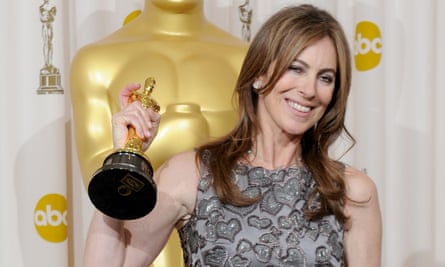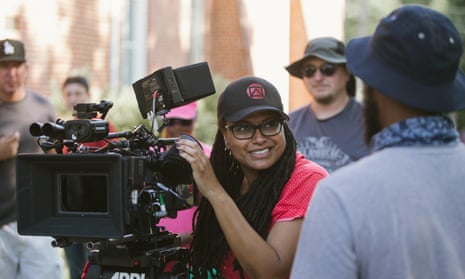The film industry has had momentous upheavals over the last 12 months, but an annual diversity survey has found that the US movie industry is no more diverse than it was a decade ago, and “there was no meaningful or sustained change in 2017” for female, black or Asian directors in Hollywood.
The report, commissioned by the University of Southern California’s Annenberg School for Communication and Journalism, surveyed 1,100 films made in the last 11 years, and found that just 4% were directed by women – which equates to 22 male directors hired for every woman.
The study found that female directors typically had shorter careers. On average they started later and ended earlier than those of men, and 83.7% of women never directed a second movie, as opposed to 55.3% of men. Women were more likely to face a “fiscal cliff”, finding it significantly harder to graduate from independent, low-budget features and television to higher-grossing movies. Furthermore, just 5.2% of all directors – male and female – were black or African American, and 3.2% were Asian. Of the 43 female directors who made movies between 2007 and 2017, four have been black, two Asian and one Hispanic (Mexico’s Patricia Riggen, director of Chilean mining disaster dramatisation The 33).
“Hollywood’s ‘female director problem’ has been the source of much dialogue over the past several years,” says the report’s author, Stacy L Smith. “The evidence reveals that despite the increased attention, there has been no change for women behind the camera. Mere conversation is not the answer to these problems – and the time for conversation is up. Until major media companies take concrete steps to address the biases that impede hiring, nothing will change.”
The findings will disappoint those hopeful for change in the film industry, after a year marked by dramatic revelations of sexual predation and harassment, and the subsequent #MeToo social media campaign. It appears these developments have yet to make an appreciable impact on the industry’s power structures.

“Some of the largest media companies in the world continue to underperform when it comes to hiring diverse directors and that inequality begins at the top,” the report states. More than 82% of senior executives at the seven top media companies were male, the survey found, and of the women, a mere four were from underrepresented racial/ethnic groups. On the directors’ boards, under 20% of positions were filled by women, and four of the seven companies – 21st Century Fox, Sony, Comcast (parent company of Universal) and Lionsgate – had only one woman on their boards.
The report warns of a potentially damaging disconnect between progress on diversity in the industry and public sentiment. “Consumers have voted with their dollars in extraordinary ways this year, propelling films like Wonder Woman and Beauty and the Beast to the top of the box office charts,” it states. “They have also turned away from film and to other platforms and different content to fulfil entertainment needs – issuing a strong warning to the film industry that business as usual is simply unacceptable.”
